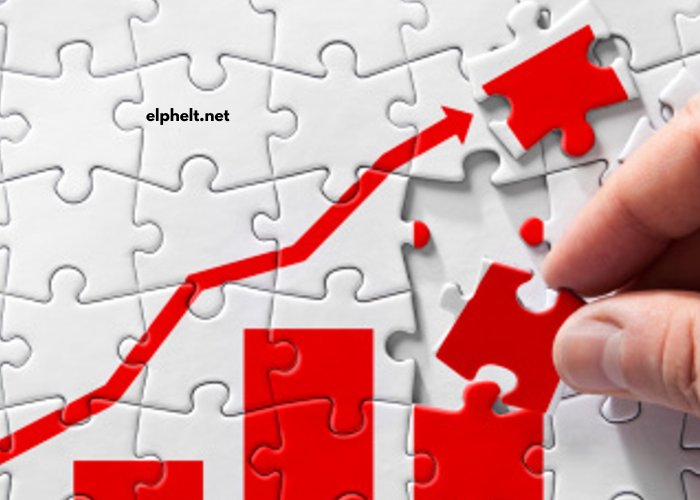In the fast-paced and ever-changing world of business, staying ahead of trends is crucial for success. The landscape of industries is continuously evolving, influenced by technological innovations, shifts in consumer behavior, and global economic changes. As we move deeper into 2025, businesses must keep their fingers on the pulse of emerging trends to remain competitive and drive sustainable growth. In this article, we’ll explore the top business trends you need to know this year, from digital transformation to sustainability and everything in between.
1. Digital Transformation Continues to Dominate
The Importance of Adopting New Technologies
Digital transformation has been a buzzword for years, but it’s no longer optional—it’s essential. Companies across industries are increasingly leveraging advanced technologies like artificial intelligence (AI), machine learning, and automation to streamline operations, enhance customer experiences, and drive profitability. In 2025, businesses that resist digital transformation risk falling behind.
One of the primary areas where digital transformation is making an impact is customer service. Chatbots powered by AI and machine learning can now handle routine inquiries, offering quicker responses and freeing up human employees to focus on more complex tasks. Similarly, automation tools can reduce human error and improve efficiency in everything from supply chain management to marketing campaigns.
AI and Data Analytics: The Power of Insights
Another crucial aspect of digital transformation is the use of data analytics. With the rise of big data, companies now have access to more information than ever before. The ability to analyze and interpret this data can provide valuable insights into customer preferences, market trends, and operational inefficiencies.
AI tools are at the forefront of this transformation, enabling businesses to process and analyze massive volumes of data in real time. As data-driven decision-making becomes the norm, companies will need to invest in data analytics tools and develop a strong data culture to stay competitive.
2. Sustainability and Green Business Practices
Growing Consumer Demand for Sustainability
In recent years, consumers have become more environmentally conscious, pushing companies to prioritize sustainability in their operations. According to various studies, consumers are more likely to support businesses that demonstrate a commitment to reducing their environmental impact. This trend is expected to intensify in 2025, as younger generations become the dominant consumer base.
Businesses that embrace sustainability not only contribute to the planet’s well-being but also benefit from improved brand loyalty, increased sales, and a positive public image. Whether it’s adopting eco-friendly materials, reducing waste, or shifting to renewable energy sources, sustainability is no longer a niche—it’s a necessity.
Corporate Social Responsibility (CSR) Takes Center Stage
Corporate Social Responsibility (CSR) is another key aspect of the sustainability movement. Companies are increasingly expected to take a stand on social, environmental, and ethical issues, especially in an era where consumers and employees alike are more vocal about their values.
Organizations are focusing on reducing their carbon footprints, supporting local communities, and ensuring fair labor practices in their supply chains. Transparency in CSR initiatives is also critical, as businesses that fail to show measurable progress may lose consumer trust.
3. Remote and Hybrid Work Models Are Here to Stay
The Rise of Flexible Work Arrangements
The COVID-19 pandemic dramatically shifted how businesses operate, and remote work quickly became the norm for many employees. While some companies have since returned to in-person offices, the remote and hybrid work models are now a permanent fixture of the modern workplace.
In 2025, flexible work arrangements will continue to be a top trend. Businesses will need to adapt to a more distributed workforce by implementing technology that supports remote collaboration, such as video conferencing tools, project management software, and virtual team-building activities.
Employee Well-Being and Mental Health
With remote and hybrid work arrangements, employee well-being and mental health have become more important than ever. Many workers are struggling with feelings of isolation, burnout, and work-life balance issues. As a result, companies are focusing on creating supportive work environments that promote mental health and overall well-being.
This may include offering flexible work hours, providing access to mental health resources, and fostering a culture of open communication. Investing in employees’ mental health not only helps to improve morale but also enhances productivity and retention rates.
4. E-Commerce and Online Marketplaces Continue to Expand
The Shift Toward Online Shopping
The e-commerce boom that started during the pandemic has shown no signs of slowing down. In 2025, the global e-commerce market is expected to reach new heights, driven by changing consumer habits and advances in online shopping technologies. Consumers now prefer the convenience of shopping from home, and businesses are capitalizing on this trend by expanding their online presence and improving their e-commerce platforms.
From virtual try-ons to AI-driven product recommendations, e-commerce businesses are constantly innovating to enhance the online shopping experience. As a result, companies must ensure their websites are user-friendly, mobile-optimized, and equipped with secure payment options.
Social Commerce and Influencer Marketing
One of the most notable developments in e-commerce is the rise of social commerce—selling products directly through social media platforms. With the integration of shopping features on platforms like Instagram, TikTok, and Facebook, businesses are tapping into the power of social media influencers and user-generated content to drive sales.
Influencer marketing continues to grow as a crucial marketing strategy. In 2025, businesses that collaborate with influencers on social media platforms will have a competitive edge, as influencers help to build trust with their audiences and provide social proof for products and services.
5. Personalization and Customer Experience
The Demand for Personalized Experiences
In today’s competitive business environment, offering a personalized customer experience is no longer a luxury—it’s an expectation. Consumers want businesses to understand their individual preferences and provide tailored solutions. This trend is expected to grow in 2025 as more companies leverage data analytics and AI to deliver personalized marketing messages, product recommendations, and customer support.
From personalized email marketing campaigns to customized product offerings, businesses are using data to craft experiences that resonate with their customers on a deeper level. Companies that excel in personalization will stand out from the competition and foster greater customer loyalty.
Omnichannel Experience for Seamless Interactions
In addition to personalization, providing a seamless omnichannel experience is crucial for businesses aiming to build long-term customer relationships. Today’s consumers interact with brands across various touchpoints—websites, mobile apps, social media, and in-store. To meet these expectations, businesses must ensure that their messaging, product offerings, and customer support are consistent across all channels.
An omnichannel approach enables businesses to engage with customers at every stage of their journey, creating a cohesive and frictionless experience. In 2025, companies that invest in omnichannel strategies will be well-positioned to thrive in an increasingly interconnected world.
6. Blockchain Technology and Cryptocurrencies
The Growing Role of Blockchain in Business
Blockchain technology, best known for powering cryptocurrencies like Bitcoin and Ethereum, is gaining traction beyond the financial sector. In 2025, more businesses will explore the potential of blockchain for applications such as supply chain transparency, secure transactions, and decentralized finance (DeFi).
Blockchain’s ability to provide a secure, transparent, and immutable record of transactions makes it particularly attractive for industries that require high levels of trust and data integrity, such as healthcare, logistics, and finance.
Cryptocurrencies as Payment Methods
Cryptocurrencies are no longer just a speculative investment—they are beginning to be recognized as viable payment methods by an increasing number of businesses. Major companies like Tesla and PayPal have already integrated cryptocurrencies into their payment systems, and in 2025, more businesses will follow suit.
While cryptocurrencies still face regulatory uncertainty and volatility, the growing interest in digital currencies indicates that they are here to stay. Businesses that accept cryptocurrencies can tap into new customer segments and offer additional payment options.
7. Artificial Intelligence and Automation in Business Operations
AI-Powered Automation for Efficiency
Artificial Intelligence (AI) is transforming business operations in 2025. AI-powered automation tools are becoming increasingly sophisticated, allowing businesses to optimize everything from inventory management to customer support.
By automating repetitive tasks, businesses can free up valuable time and resources that can be better spent on strategic initiatives. AI and machine learning algorithms can also analyze data to identify trends, predict demand, and improve decision-making.
Robotics and Process Automation
In addition to AI, robotics and process automation are revolutionizing industries like manufacturing, logistics, and healthcare. Robots equipped with advanced sensors and AI capabilities can perform tasks that are either too dangerous or too repetitive for human workers, improving safety and efficiency.
In 2025, we can expect further advancements in robotics and automation, enabling businesses to reduce costs, improve production speeds, and enhance overall productivity.
Conclusion: Staying Ahead of the Curve
In conclusion, the business landscape in 2025 will be shaped by digital transformation, sustainability efforts, evolving work models, and innovations in customer experience. By staying informed about these top business trends, companies can adapt to changes and seize new opportunities to stay competitive in a dynamic market.
From embracing AI and automation to prioritizing sustainability and improving customer personalization, businesses that remain agile and forward-thinking will be well-positioned for long-term success. Keep an eye on these trends, invest in the right technologies, and ensure your business is ready to thrive in the years to come.







